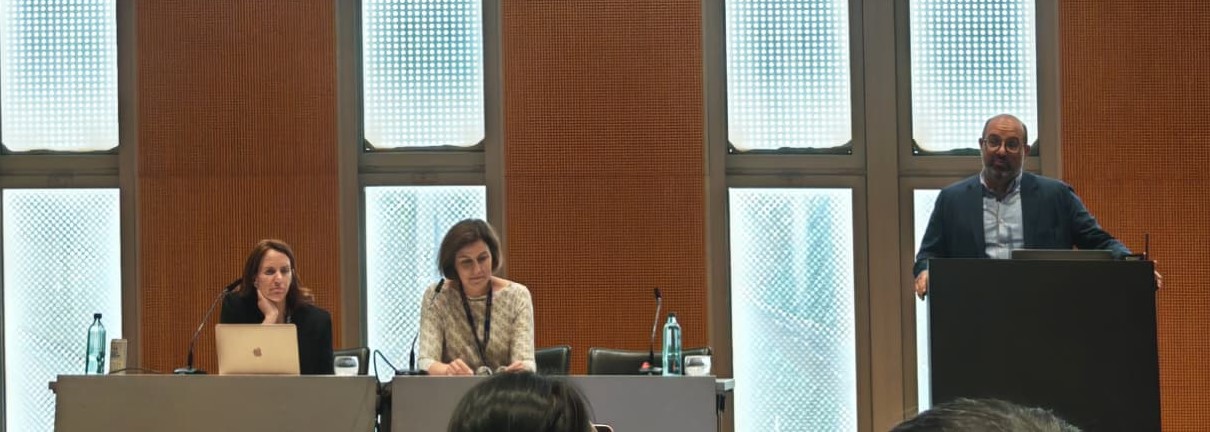
AGU Master’s in Family Medicine Receives International Recognition for its Innovative Mentorship Model at Global Medical Education Conference in Barcelona
Arabian Gulf University
09 Sep, 2025
The Clinical Master’s Programme in Family Medicine at the Arabian Gulf University (AGU) has received international recognition after presenting its innovative mentorship model at the Association for Medical Education in Europe (AMEE) International Conference on Medical Education, recently held in Barcelona.
Prof. Mohamed Hany Shehata, Professor of Family Medicine at the College of Medicine and Health Sciences, presented a scientific paper on the programme’s research, for which the primary author was Dr Fatima Habbash, Assistant Professor of Family and Community Medicine at the College, Senior Consultant in Family Medicine, and Lifestyle Medicine Specialist.
Launched in April 2020, the programme was designed with a system based on regular data collection and analysis to ensure long-term success and sustainability. It features a multi-level mentorship system, with a ratio of one academic mentor to every five trainees. This component, which has won international acclaim, has become a cornerstone of the Master’s programme and a model for providing academic guidance and psychological support to trainees.
Among the programme’s key innovations highlighted at the conference was the use of an organised electronic dashboard to track multiple key performance indicators for each trainee. This enabled the immediate collection and analysis of data, the early identification of challenges faced by trainees, and the delivery of timely and personalised interventions.
The study’s findings revealed that the programme was effective in identifying several challenges, the most prominent being time management, alongside other psychological, social and health-related issues. Thanks to the system, the academic committee was able to provide tailored interventions, such as psychological support and the use of high-fidelity simulation techniques to strengthen training. A A total of 12 trainees (15% of the total cohort) were identified as being at risk. Through carefully designed interventions, 50% of them were able to graduate on time, while the others successfully completed the programme thereafter.
The study confirmed that data-driven mentorship and monitoring programmes are essential to ensuring the success of medical postgraduate trainees. It also demonstrated the importance of sound governance, effective leadership and teamwork in sustaining excellence across medical education programmes.
The programme continues to implement this system for new cohorts through its academic committee and a team of mentors and trainers drawn from Family Medicine consultants in primary healthcare centres across the Kingdom of Bahrain.
